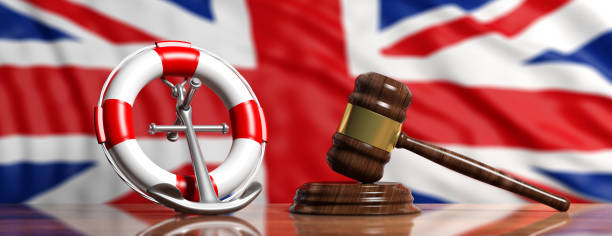Safety is a fundamental concern for individuals and businesses alike, whether it relates to physical health, property protection, or financial security. In response to these needs, safety insurance companies offer a variety of coverage options designed to protect against risks and provide peace of mind. These companies provide insurance products tailored to specific needs such as workplace safety, employee protection, business continuity, home protection, and accident coverage.
In this article, we will explore the role of safety insurance companies, the types of safety-related insurance they offer, and how they protect individuals and businesses from various risks. We will also highlight some prominent safety insurance providers that operate globally and discuss the importance of safety insurance in today’s world.#
What is Safety Insurance?
Safety insurance refers to insurance products designed to help individuals, businesses, and organizations mitigate risks that could result in financial loss or harm. These risks may relate to physical accidents, damage to property, natural disasters, workplace hazards, or other unforeseen events.
The purpose of safety insurance is to provide a safety net by offering financial protection for various forms of risks, ensuring that policyholders can recover from unexpected incidents. Safety insurance is important because it helps prevent devastating financial burdens and supports individuals and businesses in managing the aftermath of accidents, theft, and damage.
Types of Safety Insurance
There are several types of safety insurance policies that cater to different needs. These policies can protect against accidents, health-related issues, property damage, and even liability risks that might arise in everyday life or within business operations. The main categories of safety insurance include:
1. Workers’ Compensation Insurance
Workers’ compensation insurance is designed to protect employees in case they are injured or fall ill due to their work. This type of insurance covers medical expenses, rehabilitation costs, and lost wages due to workplace injuries. It also provides death benefits for families in the event of a fatal workplace accident.
- Coverage for Workplace Injuries: Workers’ compensation helps employees who are injured on the job by covering medical bills, hospital visits, and rehabilitation.
- Disability Benefits: If an employee becomes temporarily or permanently disabled due to a work-related injury, workers’ compensation provides wage replacement benefits to help them continue supporting themselves.
- Employer Protection: Workers’ compensation insurance also protects employers from lawsuits related to workplace accidents, as employees typically agree to forgo suing the employer in exchange for receiving compensation through this policy.
This insurance is mandatory in many countries, and businesses of all sizes are required to provide coverage for their employees.
2. Health Insurance
Health insurance is a crucial safety insurance policy that helps individuals cover medical costs in the event of illness, injury, or emergency medical situations. Health insurance may cover doctor visits, hospital stays, prescription medications, surgeries, and preventive care.
- Accident Coverage: Health insurance typically includes coverage for accidental injuries, ensuring that policyholders can receive the necessary treatment without facing financial hardship.
- Emergency Services: Health insurance policies can also cover emergency services, such as ambulance transportation, emergency room visits, and urgent care facilities.
- Critical Illness Coverage: Some health insurance policies offer additional coverage for critical illnesses like cancer, heart disease, and stroke. This can help policyholders afford expensive treatments and therapies associated with severe medical conditions.
Health insurance is essential for maintaining personal safety, as it provides access to vital healthcare services while reducing the financial impact of medical treatment.
3. Homeowners and Property Insurance
Homeowners insurance and property insurance protect individuals and businesses from the financial impact of damage to their property. This includes coverage for damage caused by natural disasters (e.g., earthquakes, floods, storms), vandalism, theft, and accidents.
- Property Damage: If an insured property is damaged or destroyed by a covered event, the insurance company will compensate the policyholder to repair or rebuild the structure. This can include damage to the home, buildings, furniture, and personal belongings.
- Liability Coverage: Homeowners insurance also includes liability protection if someone is injured while on the insured property. For example, if a guest slips and falls on the premises, liability coverage can help cover medical expenses or legal costs if a lawsuit is filed.
- Theft and Vandalism: Property insurance also covers theft and vandalism, ensuring that homeowners or businesses are compensated for stolen or damaged items.
Homeowners and property insurance provide critical safety and security, ensuring that property owners are financially protected against a variety of risks.
4. Auto Insurance
Auto insurance is designed to provide protection for individuals and businesses in the event of a car accident or vehicle-related incident. Auto insurance policies typically include several types of coverage:
- Liability Coverage: This covers damage or injury to another person or their property if the policyholder is at fault in an accident.
- Collision Coverage: This helps repair or replace the policyholder’s vehicle in the event of a collision, regardless of fault.
- Comprehensive Coverage: This covers non-collision incidents, such as theft, vandalism, natural disasters, or hitting an animal.
- Uninsured/Underinsured Motorist Coverage: This protects the policyholder if they are involved in an accident with a driver who has insufficient or no insurance.
Auto insurance is a necessary form of safety insurance for anyone who owns or operates a vehicle, as it provides financial protection against accidents, damages, and liability.
5. Business Insurance
Business insurance is designed to protect companies from the financial consequences of accidents, damage, theft, or lawsuits. Business insurance can include several types of coverage:
- General Liability Insurance: This covers businesses in case they are sued for accidents, injuries, or property damage caused by their products, services, or employees.
- Property Insurance: Property insurance protects businesses from damage or loss of their physical assets, such as buildings, machinery, and inventory. This coverage helps businesses recover from natural disasters, fire, theft, or vandalism.
- Business Interruption Insurance: If a business is forced to temporarily close due to an insured event, business interruption insurance can provide coverage for lost income, helping the business stay afloat during challenging times.
- Professional Liability Insurance: Also known as errors and omissions insurance, this protects businesses from claims of negligence, mistakes, or failures to deliver professional services.
Business insurance helps ensure that companies can continue to operate even after unexpected events. It provides a safety net for business owners and helps them manage risks that could otherwise threaten their financial stability.
6. Travel Insurance
Travel insurance offers safety and protection for individuals when they are traveling. It typically includes coverage for unforeseen events that can impact a trip, such as accidents, illness, flight cancellations, lost luggage, or emergency evacuations.
- Medical Coverage: Travel insurance often includes coverage for medical emergencies abroad, including hospitalization and treatment, which is especially important for travelers who are in countries where healthcare costs may be high.
- Trip Cancellation or Interruption: If a trip is canceled or interrupted due to an emergency or unforeseen event (such as illness, injury, or natural disasters), travel insurance can cover lost costs for flights, accommodations, and other trip-related expenses.
- Lost or Stolen Property: Travel insurance can provide compensation for lost luggage, stolen items, or personal belongings that are damaged during the trip.
Travel insurance provides a safety net that can help travelers manage unexpected incidents, ensuring that their journeys remain as smooth and stress-free as possible.
7. Accident Insurance
Accident insurance is designed to provide financial protection in the event of an accident that results in injury, disability, or death. This type of insurance offers benefits such as:
- Medical Expense Coverage: Accident insurance helps cover medical bills incurred due to an injury, including hospital stays, surgeries, and rehabilitation.
- Disability Benefits: If the accident results in permanent disability, accident insurance provides financial compensation to help replace lost income and support the policyholder during recovery.
- Death Benefits: If the policyholder dies as a result of an accident, the policy will pay a lump sum benefit to the policyholder’s beneficiaries.
Accident insurance is particularly important for individuals whose jobs or lifestyles carry higher risks of accidents. It offers financial protection in cases where an unexpected injury could lead to significant medical expenses or loss of income.
Prominent Safety Insurance Companies
Many insurance companies around the world provide a wide range of safety insurance products. Some of the leading safety insurance providers include:
- Allianz Group: Allianz is one of the largest insurance companies globally, offering a broad range of safety insurance products, including life, health, property, and casualty insurance. It operates in over 70 countries and provides tailored coverage for both individuals and businesses.
- AIG (American International Group): AIG offers comprehensive insurance solutions, including workers’ compensation, accident coverage, and business insurance. The company operates in over 80 countries and is a trusted provider of safety and risk management solutions.
- AXA: AXA is a multinational insurance company that provides a wide array of safety insurance products, from health and life insurance to auto and business coverage. AXA is known for its strong focus on customer service and innovative insurance solutions.
- Zurich Insurance Group: Zurich is a global insurer that provides a range of safety insurance products, including property, casualty, and life insurance. The company also offers specialized insurance solutions for businesses, including risk management services.
- State Farm: State Farm is one of the largest insurance providers in the United States, offering a wide range of safety insurance options, including auto, home, health, and life insurance. State Farm is known for its commitment to customer satisfaction and has a large network of agents who provide personalized service.
Conclusion
Safety insurance companies play a critical role in providing financial protection against the risks and uncertainties of life. Whether you are an individual seeking personal protection or a business owner managing operational risks,



